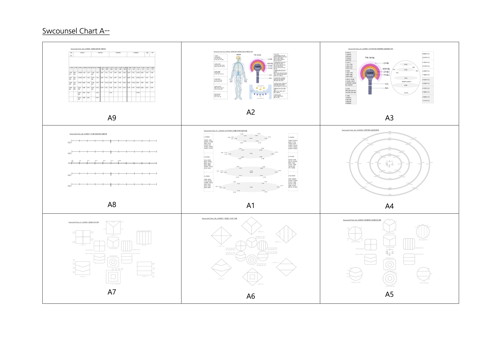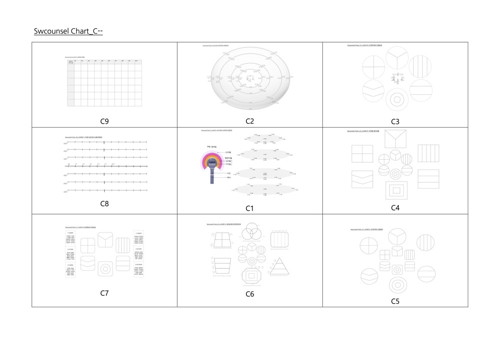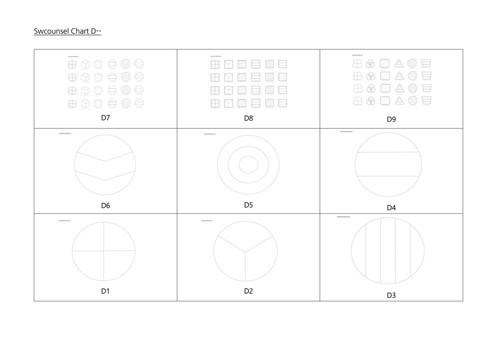Last summer I served as a chaplain at a local hospital in a Clinical Pastoral Education (CPE) program. As a counselor-turned-chaplain, I faced a host of new challenges, navigating questions like these: How do you assess needs and set goals for brief, one-time conversations? How do you cultivate meaningful conversations that address the deepest heart issues with people who don’t know you or even know that you are coming to see them? Here is some of what I observed and learned.
The Hospital Experience
Understandably, hospital patients face a host of spiritual and emotional challenges. Patients and visitors alike are in alien and disorienting terrain. Anxiety abounds, ranging from the immediate concerns of how the kids will get home from school, to more serious questions—How long will I be here? How will this affect my marriage or job? Or even—Am I going to die?
Anxiety is often complicated by pain, isolation, loneliness, frustration, anger, loss and grief. And, of course, this often raises larger questions about the reasons for suffering, the nature of God’s love, and what our lives are all about—How could God let this happen? Why is this happening to me?
Pastoral care in these situations requires caregivers to help patients navigate both the emotional turmoil of the moment as well as the larger existential questions of meaning and purpose. Utilizing the biblical metaphor of wilderness, here is a framework that can aid caregivers in doing both.
Life in the Wilderness
Time spent in alien terrain filled with challenges to survival, purpose, and meaning should remind us of Israel’s journey through the wilderness. Just like the hospital patient, everyday life for Israel was dramatically interrupted by a seismic change and a journey into the unknown.
Of course, God orchestrated the exodus for Israel’s deliverance from Egypt. Nonetheless, it was an ordeal that left many questioning God’s identity as well as their own. It was a place where they were unable, through human effort, to preserve themselves.
This served the necessary purpose of coming to know who God was—and coming to know who they were. They needed to see themselves not as slaves, but as children who needed to rely on a loving father who gave them exactly what they needed.
Using the wilderness as a metaphor, let’s explore specific ways of being a companion in a hospital setting.
A Companion in the Wilderness
What follows are four ways to help. You may only get to use the ideas in point #1 during a visit, but in another situation you may be able to engage more deeply. Being a shepherd in the wilderness will take on many forms—you will respond in the moment to the needs at hand.
1. Invite emotional sharing. An important way to join patients and their loved ones in the wilderness is to invite them to share their hearts using emotional language. Hospital visitors often do not realize how often patients ignore or suppress negative emotions. Patients may wear a stoic or even cheerful mask because they fear that expressing their emotions would only amplify them or burden loved ones.
Complicating matters further, they may believe that a lack of faith is at the heart of their distress. For example, “I’m upset because I’m too focused on myself instead of God.” A sense of spiritual failure adds shame to their distress. However, keeping their distress to themselves isolates them and keeps them from receiving the care and support that they might receive if they shared their struggles.
A few simple questions were often enough to prompt distressed patients to share more deeply. For instance, after introductions I would sometimes say, “I know that being in the hospital can be very stressful. How are you doing emotionally?”
As patients begin to share, use their own words to highlight and affirm them. These are examples of how you might express your genuine understanding and care about what they share:
“I can understand why you’re scared.”
“I can really see how much you miss your children.”
“You sound frustrated with the doctors.”
Simple and brief responses are often enough to show that you are listening, understand, and are signaling for them to continue sharing. Your authentic interest and concern are the critical ingredients at this point.
If there simply isn’t time to do any more than this sharing, or if the patient is in such a state that it doesn’t seem wise to say anything more, then your visit may end here or perhaps with a prayer if he or she desires it. Many helpers find ending the conversation without having had a more explicitly spiritual conversation difficult. However, we must remember that pressured, forced, or shallow applications of gospel truth can do more harm than good, actually robbing the suffering person of comfort rather than providing it.
The simple practice of listening to and being present with patients has great value. It is sometimes referred to in chaplaincy as “pastoral presence.” A caring person’s presence has its own worth even if patients aren’t receptive to more overt spiritual dialogue. You might not be able to speak about God, but your presence still represents him. Through you, he shows his concern with what is happening in their lives.
Inviting emotional sharing and simply being present are foundational ways to minister. But you will often have more time with people and can engage more deeply.
2. Listen for their theology of suffering. Understanding how people interpret suffering is another key way to offer help. Here are some statements you might hear from a patient or a family member.
“I don’t understand.”
“I’m angry. I don’t deserve this.”
“I deserve this.”
“I’m afraid.”
When you hear statements like these, don’t assume you know the person well enough to fully understand him or her. For example, a cardiac patient says, “I deserve a heart attack because I’ve been a terrible husband.” If you superficially respond—“I’m sure you haven’t been as bad as you think”—you are communicating that you aren’t willing to hear about the affair that he had ten years ago. Your comment suggests that you don’t really understand him—and he’s right.
Try to avoid speaking too quickly and offering unhelpful feedback.
Validate the experience and invite the person to explore. “It sounds like you’ve been thinking a lot about your marriage. Would you like to talk more about that?”
Help the person make room for mystery. In most cases, we don’t know why we are suffering unless our actions led directly to our illness or injury. Gently suggest that the person let go of the need to know and avoid jumping to conclusions. “Could it be that there are reasons for this that you may not ever fully understand?”
Offer grace. If someone’s suffering is a natural consequence of their own behavior (e.g., a drug overdose), they usually don’t need help understanding why they are suffering, instead they need to be pointed to God’s grace. “God is merciful and forgiving. If you ask, he will forgive you and cleanse you of guilt. Would you like me to pray with you?”
The suffering that comes from being hospitalized will reveal people’s theology of suffering. Most will experience some fear, and wonder about where God is in the matter. Simple questions and reflections based on their concerns may help them to see God more clearly in this struggle. They need to know that God is for them, that he is a loving father in the wilderness, not a vindictive Pharaoh. For example, we might ask the cardiac patient to consider God’s work, “So you’re saying that there is more than one way that your heart needs to be healed? Maybe God is offering to heal both.”
Once a patient has been helped to voice the experience of suffering, you may then have an opportunity to help locate God’s help in the midst of the person’s need.
3. Locate the manna. If given the opportunity, help the people you are speaking to locate manna—evidences of God’s presence and care. Ask how God has already been speaking and supporting them. Identify ways they have been finding motivation and strength. Think, pray, and look for simple ways to direct them to God’s love and grace.
4. Address relational dynamics. Hospitalization often amplifies family dynamics. This can be an opportunity for caregivers to provide wisdom and support at key moments. Here are ways you can do that.
Facilitate fruitful interactions. Look for opportunities to help patients and family speak the truth in love with each other and medical staff. With medical staff this may mean timing your visit to coincide with morning rounds so you can help family to ask questions of doctors, express concerns, and help them to digest what they’re hearing. With family, it may mean encouraging them to be honest with each other about fears, resolve conflict, and alleviate guilt.
Find out who has been left at home. Patients worry about loved ones who are dealing with everyday life without them. Asking people about concerns they have for loved ones allows you to not only listen and care but also helps them identify resources. You may be able to help locate other family or friends that can step in and help while they are in the hospital. You may offer to contact their church or even a social worker at the hospital for help.
Address loneliness. Hospital rooms can be boring and lonely places. Is a patient hoping or expecting someone to come to visit who hasn’t? The person may be afraid to ask for a visit for fear of being a bother. As patients talk about who they wish to see, you can suggest that they contact them or offer to contact them yourself.
Offering Christ’s Presence
There are many ways to be present and offer hope. Help patients to put their experience into words. Speak to their understanding of suffering. Point them to comfort and hope. Tend to their relationships. These four general themes are foundational. But above all, remember that your genuine interest and care proclaims the presence of Christ.
This condensed article originally appeared in the CCEF NOW 16 Magazine. Free Magazine Download
Purchase your copy of the Journal of Biblical Counseling 29:3 to read the expanded article.
 센터원장
센터원장





 계절풍
계절풍









